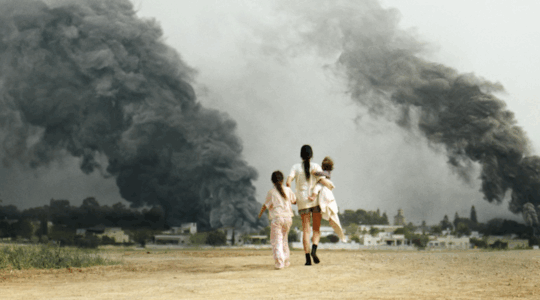Martin Kramer uncovered a discrepancy between the Goldstone Report and its source material, and his post is worth quoting in full:
I’ve been reading through the part of the Goldstone Report treating the economic impact of Operation Cast Lead—a part that hasn’t gotten much attention. It’s largely a crib of a March 2009 report compiled by the Palestinian Federation of Industries, whose deputy general-secretary, Amr Hamad, was interviewed three separate times by the mission. The mission deemed both the report and Hamad’s testimony to be "reliable and credible."
The most important sentence in this section of the Goldstone Report is this one: "Mr. Amr Hamad indicated that 324 factories had been destroyed during the Israeli military operations at a cost of 40,000 jobs" (paragraph 1009). I did a double-take when I read that: 40,000 would be astonishing in an economy like Gaza’s. This is what Hamad said in his testimony (June 28, Goldstone in the chair):
"The industrial sector that was destroyed, for example, the 324 factories that were destroyed, that we[re] destroyed used to employ four-hundred thous-, uh, 40,000 workers. And these have lost their uh, jobs, uh, forever."
So that’s the source of the number. But if you return to the report of the Palestinian Federation of Industries, it puts the job losses at these 324 factories not at 40,000, but at 4,000. That’s an order-of-magnitude misrepresentation by Hamad of his own organization’s findings. The Goldstone Mission should have wondered at the figure, checked Hamad’s testimony against the Palestinian Federation of Industries report, detected the discrepancy, and gotten it right. But it didn’t. Perhaps the mission members, hearing the word "factories," thought that 40,000 jobs sounded credible. In fact, more than a quarter (88) of these 324 "factories" employed five people or less, and over half (189) employed from five to twenty people (Federation report, p. 12). The vast majority of these "factories" should really be described as "workshops." Only three employed a hundred or more people.
Of course, that 40,000-lost-jobs figure has made its way to numerous websites, and might eventually surface in an op-ed in a major newspaper. (That sort of thing has happened before.) So it would behoove the mission to issue a correction, and post a corrected version of its report. After all, this isn’t a matter of interpretation.
And as you ponder all those figures in the Goldstone Report, just keep in mind that it contains at least one order-of-magnitude error regarding a very basic statistic. The report isn’t just biased. It’s shoddy.
Let me add one thing: Just prior to the Hamad quote above, he says: "The industrial sector, for example, has lost more than 33,000 jobs." So not only should the Goldstone commission have questioned the figure simply because of the realities of the Gaza economy before the war — anyone listening to Hamad, or reviewing the transcript later, should have immediately understood that he was misspeaking. 40,000 does not go into 33,000.
I haven’t read the whole report as closely, but those parts I have examined have struck me, similarly, as not being tethered to knowledgeable understanding of the source material.
One egregious example comes immediately to mind: Quoting Haim Ramon and Eli Yishai to establish intent to harm civilians. Neither man would have been involved in the planning of the war, and anyone with a passing knowledge of the Israeli political culture would have been aware that each man has a reputation for being a blowhard. That they would go off the reservation and pretend to insights they did not have is a function of the parliamentary system and its tendency to group together political rivals in the same government, and is difficult to explain to Americans, who are used to the unitary executive.
But the phenomena of blabbermouths pretending to more power than they have is not unusual in parliamentary democracies, and especially not in parliamentary democracies based on proportional representation, and really, especially not in Israel. (The only American example that comes to mind is Alexander Haig pretending he was running things after Reagan was shot.)
In any case, Goldstone was willing to cite Israeli political marginals to establish intent to commit war crimes while expressing skepticism of quotes from leading Hamas officials establishing intent to use civilians as shields.
I don’t think this trashes the whole report — some parts, as I’ve said, deserve consideration, particularly those dealing with the "white flag" killings of civilians who had signalled surrender — these seem thorough to me.
But it underscores how the report, from conception to execution, has done more to muddy what happened than to make it clear. And this, coming from professionals such as Goldstone, is appalling and frustrating in the extreme.
JTA has documented Jewish history in real-time for over a century. Keep our journalism strong by joining us in supporting independent, award-winning reporting.





